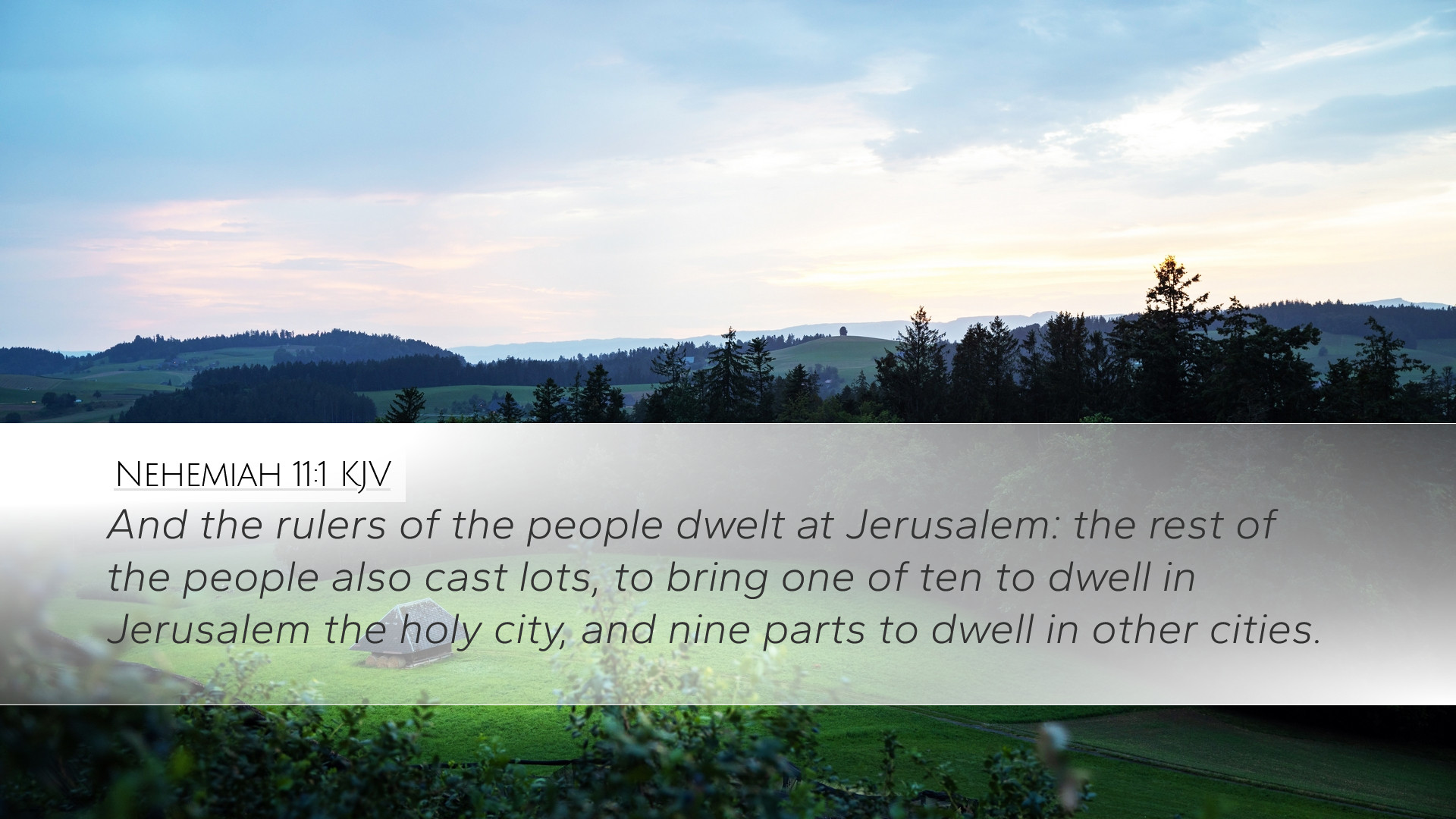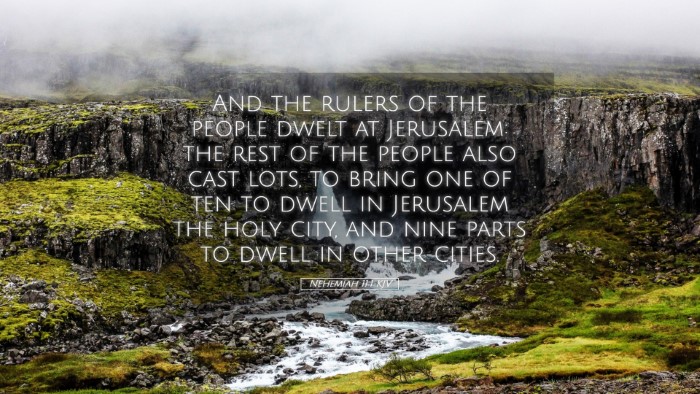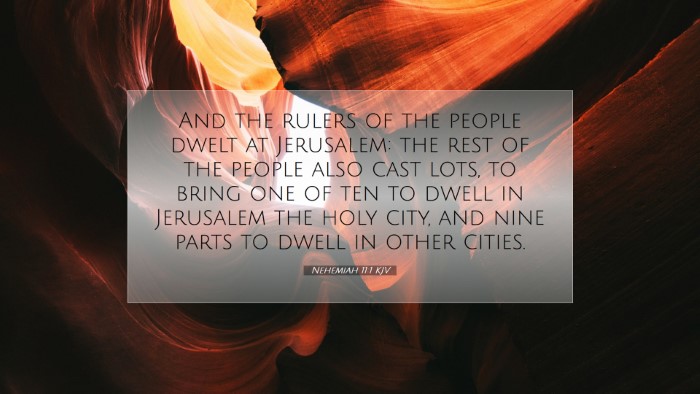Commentary on Nehemiah 11:1
Nehemiah 11:1 reads: "Now the leaders of the people dwelt at Jerusalem: the rest of the people also cast lots, to bring one of ten to dwell in Jerusalem, the holy city, and nine parts to dwell in other cities."
This verse marks a significant transition in the life of the post-exilic community of Judea. The commitment to repopulate Jerusalem is a focal point in Nehemiah's mission, reflecting both a practical necessity and a profound spiritual significance.
Contextual Background
After the return from Babylonian exile, the Jewish people experienced substantial challenges in rebuilding their homeland. Nehemiah, sent by God, took on the task of restoring the wall of Jerusalem but understood that physical restoration must be paralleled by spiritual renewal. Scholars like Albert Barnes emphasize that this chapter marks a shift from the external to the internal: the re-establishment of the community in the holy city.
Interpretation of the Text
Matthew Henry notes that the leaders of the people residing in Jerusalem indicates stability and governance. This echoes the importance of leadership in nurturing a strong community. Those in high positions set examples of dedication and sacrifice for the larger populace. The act of casting lots symbolizes a collective decision, emphasizing God’s providence in choosing who would inhabit the city.
Significance of Jerusalem
Jerusalem is referred to as the "holy city," underscoring its spiritual and historical significance to the Jewish people. The presence of the temple, the celebration of festivals, and the offering of sacrifices all contribute to its sacred nature. Adam Clarke expounds on this designation, suggesting it not only serves as a political center but is also the geographical focal point of God's covenant with Israel.
The Lot-Casting Process
The casting of lots to determine who would dwell in Jerusalem is an ancient practice seen throughout the Scriptures. This method, as highlighted by Albert Barnes, is a demonstration of faith, allowing God to determine the outcome. Such reliance on divine guidance illustrates the character of the people during this pivotal time.
Application for Today’s Believers
The themes highlighted in Nehemiah 11:1 carry significant implications for contemporary faith communities. It prompts reflection on the following aspects:
- Leadership: The necessity of committed leaders within the church today. Just as the leaders were the first to dwell in Jerusalem, modern leaders must take initiative in spiritual matters.
- Community Involvement: The casting of lots echoes the importance of community discernment in decision-making processes. Today’s congregations should cultivate an environment where collective decisions are viewed as integral to the Church's direction.
- Faith in Providence: The trust in God’s provision as seen in this chapter reminds us to seek divine guidance in our own decisions.
- The Importance of Location: Just as Jerusalem held special significance for the Jews, identifying and cherishing our own 'spiritual cities' can fortify our sense of belonging and mission.
Historical Insights
The historical and cultural context of Nehemiah’s time sheds light on the challenges faced by the Jewish people. Post-exilic Jerusalem was not merely a physical restoration. It represented a hope for spiritual renewal and national identity. Leaders and common people alike understood their role within the framework of God's redemptive plan; as Matthew Henry aptly puts it, this verse depicts a “people’s spirit returning to the land of their fathers.”
Challenges of Repopulation
Nehemiah’s leadership may have faced significant resistance from those reluctant to leave their homes for the perceived instability of Jerusalem. Adam Clarke acknowledges this, encouraging us to understand the willingness of those who would step into uncertainty for the sake of being part of God’s plan.
Conclusion
In summarizing Nehemiah 11:1, we see a tapestry woven with threads of leadership, community, divine providence, and the spiritual calling to inhabit the holy spaces God has ordained. For pastors, scholars, and students alike, this verse serves as a foundational reminder that every act of obedience, every decision made within the Church, requires a balance of faith and community effort. It beckons contemporary believers to consider their roles in the ongoing story of God’s people, urging engagement with both heart and mind as they navigate their spiritual journeys.


